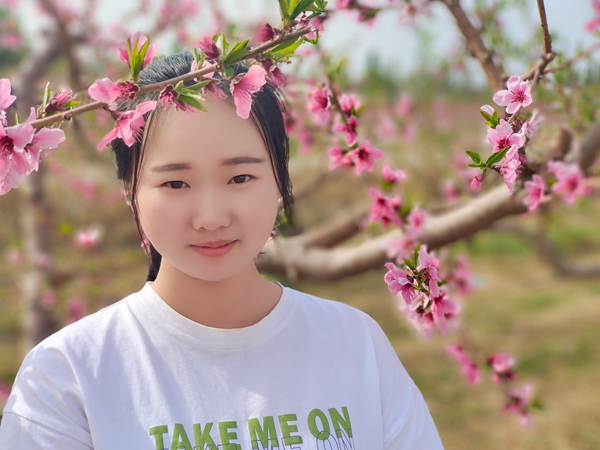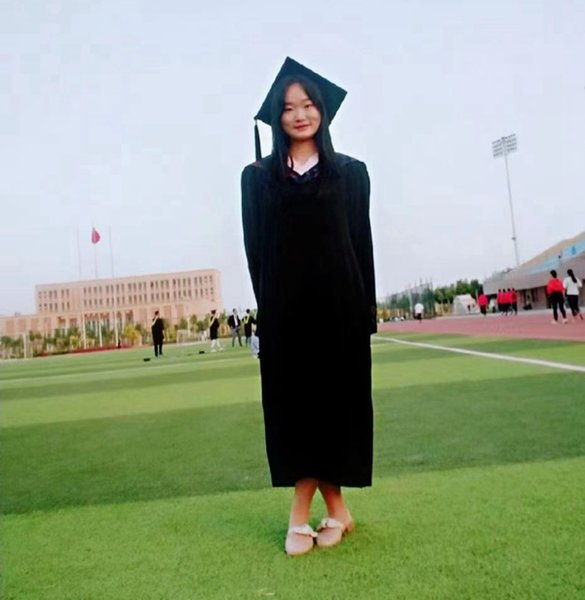Spring Bud Blooms | Bringing Love, Hope to More Children
Editor's Note
With the care of the Communist Party of China (CPC) Central Committee, and under the leadership of the All-China Women's Federation, the China Children and Teenagers' Fund (CCTF) launched the Spring Bud Project in 1989, to help impoverished girls return to school, and to promote girls' education in disadvantaged areas.
Since the 18th CPC National Congress, in 2012, with the attention and concern of the CPC Central Committee with Comrade Xi Jinping at the core, and with the strong support of Peng Liyuan, special envoy of the Spring Bud Project for promoting girls' education, the project has conducted various activities to care for and support girls, and it has focused on girls' education, safety and health. During the past decade, the project has supported 1.76 million girls, and it has provided one-on-one companionship services and personalized psychological counseling to 133,400 girls. After they receive support from the project, the Spring Bud girls never forget to give back to society. With love and various actions, the girls have demonstrated the Spring Bud spirit of "unremitting self-improvement, striving for excellence, developing stronger virtues and pursuing better lives."
Today, we introduce a new section, Spring Bud Blooms, to share stories about Spring Bud girls who have grown up and become contributing members of society, and to encourage society to care for the development of girls. Jiang Yihong is one of them.

"Spring Bud Project is like a ray of sunshine that has lit up my way forward, to fight against illness and pursue my dreams," says Jiang Yihong, a beneficiary of the project and a middle school teacher in Northwest China's Xinjiang Uygur Autonomous Region.
She says the valuable assistance she received from the project, and the intensive care she got from her parents, gave her the confidence to move forward.
Jiang chose to return — with love and hope — to her hometown to help children realize their dreams after she overcame her disease and graduated from Kashi University, in Xinjiang's Kashgar.
Jiang was born into an ordinary family, in Xinjiang Production and Construction Corps, in January 1998. She and her younger sister led a carefree childhood, although her family was not well-off at that time.
Jiang always studied hard and performed well at school. She started to feel an ache in her right leg during her third year of high school. She was eventually diagnosed with osteomyelitis, an inflammation of the bone. Jiang required three operations on her leg, and her family almost used up all of their savings to pay for those surgeries.
Jiang recalls how her parents rented a room near her high school, so it was convenient for her to attend classes. Back then, Jiang's mother always sent her to school in a wheelchair, and she carried Jiang upstairs on her back, regardless if it was windy or raining. Jiang's mother would take homemade lunches to her classroom at noon, and she would pick Jiang up after school ended each day.
Jiang was finally able to walk independently, even though she hadn't fully recovered from the illness, about three months before she wrote the national college-entrance exam.
Jiang also received much assistance from her teachers and classmates. Many boys in her class volunteered to escort her to the classroom after her mother got her to the campus.
With the support of people around her, Jiang eventually overcame her disease, and she was admitted to Kashi University.
However, Jiang fell ill again while attending the university. This time, the family could not afford her medical bills, or her tuition fees.

Officials from Xinjiang Production and Construction Corps helped Jiang apply for a subsidy, through the Spring Bud Project, and that money relieved the economic pressure on the family.
Meanwhile, the local women's federation offered Jiang a helping hand, and advised her parents to take Jiang to a large hospital for medical checkups and treatments.
Jiang went to Xi'an Honghui Hospital, in Xi'an, capital of Northwest China's Shaanxi Province, to receive a thorough examination. She was diagnosed with osteoid osteoma in her right leg. After a year of rehabilitation, Jiang recovered and, in 2016, she returned to campus.
Jiang cherished the opportunity to study again, and she won numerous honorary titles and scholarships. She graduated from Kashi University, as an outstanding student, four years later.
Jiang returned to her hometown, where she became a teacher at Huashan Middle School, after she graduated. Why? She wanted to spend more time with her parents, who had made the utmost effort to support her, and she cherished the opportunity to become a teacher, so she could impart knowledge to local children and help them realize their dreams.
Jiang is committed to ensuring the healthy and happy growth of all students. For instance, she noticed one girl was often alone, didn't want to speak with the other students, and couldn't fully focus in class. Jiang talked with the girl, and she encouraged the girl to associate with other students. Jiang also visited the girl's parents, and she advised them to care more about their daughter.
Within a few months, the girl had become more optimistic and easygoing. She is now more willing to interact with teachers in class, and has also made huge strides in her academic studies.
"As teachers, we should be more patient and give love and care to every student, especially those from single-parent or migrant families. I will remain dedicated to the cause of education, in return for all the care and support from my parents, teachers, friends and the Spring Bud Project," Jiang says.
Photos Supplied by CCTF
(Women of China English Monthly)
Please understand that womenofchina.cn,a non-profit, information-communication website, cannot reach every writer before using articles and images. For copyright issues, please contact us by emailing: website@womenofchina.cn. The articles published and opinions expressed on this website represent the opinions of writers and are not necessarily shared by womenofchina.cn.








.jpg)

 WeChat
WeChat Weibo
Weibo 京公网安备 11010102004314号
京公网安备 11010102004314号